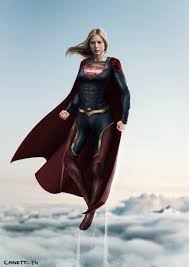
Introduction
Since her debut in the 1950s, Supergirl has evolved from a comic book character into a cultural icon, representing empowerment and resilience. Her importance extends beyond mere entertainment, as she embodies the challenges and triumphs of women in a male-dominated superhero landscape. As contemporary audiences seek diverse and relatable heroes, Supergirl stands out as a symbol of hope and strength, making her relevance in today’s society undeniable.
Supergirl’s Origins and Evolution
Created by writer Otto Binder and designed by artist Al Plastino, Supergirl first appeared in Action Comics #252 in 1959. Originally introduced as Superman’s cousin, Kara Zor-El, she brought a fresh perspective to the superhero genre. Over the decades, her character has evolved significantly, reflecting societal changes and the growing demand for strong female characters in media.
The character faced various challenges in storytelling, often being overshadowed in comic books and adaptations. However, recent portrayals, most notably in the CW television series that premiered in 2015, have revitalized her image. The show not only focused on her superhuman powers but also on her personal struggles, friendships, and feminist themes, allowing audiences to connect with her on a deeper level.
Supergirl in Modern Media
The Supergirl TV series has been pivotal in promoting diversity and representation, showcasing a lead female character who faces real-world issues alongside her superhuman battles. With a range of story arcs dealing with identity, empowerment, and the importance of community, the series has garnered both critical acclaim and a dedicated fanbase.
Moreover, Supergirl’s portrayals in various other media, including animated series, films, and merchandise, have solidified her place in pop culture. These adaptations often highlight her strength and compassion, reiterating the importance of female superheroes in inspiring younger generations.
Conclusion: The Significance of Supergirl Today
As we navigate the complexities of modern society, the character of Supergirl continues to resonate with audiences globally. Her evolution from a supporting character to a leading superhero reflects the broader changes in perspectives about gender roles and representation in media. The conversations surrounding Supergirl emphasize the necessity for diverse and inclusive storytelling, which is essential for future generations. As Supergirl maintains her prominence in popular culture, she not only entertains but also empowers, encouraging individuals to embrace their vulnerabilities and strengths, a message that is more significant today than ever before.



